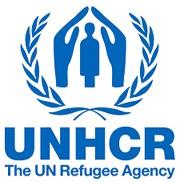Land conflicts and their impact on Refugee women’s livelihoods in southwestern Uganda
Resource information
Date of publication
июня 2006
Resource Language
ISBN / Resource ID
ISSN 1020-7473
Pages
14
Copyright details
These papers provide a means for UNHCR staff, consultants, interns and associates, as well
as external researchers, to publish the preliminary results of their research on refugee-related
issues. The papers do not represent the official views of UNHCR. They are also available
online under ‘publications’ at <www.unhcr.org></www.unhcr.org>
as external researchers, to publish the preliminary results of their research on refugee-related
issues. The papers do not represent the official views of UNHCR. They are also available
online under ‘publications’ at <www.unhcr.org></www.unhcr.org>
This paper presents the preliminary findings of a study on land conflicts between refugees and host communities in southwestern Uganda and their impact on refugee women’s livelihoods. Uganda has a long history of hosting refugees that dates back to the 1940s, when it hosted Polish refugees; Rwandese and Sudanese in the 1950s (Holborn 1975:1213-1225). Refugees were placed in gazetted areas in close proximity to the local populations such as in the settlements of Nakivale, Oruchinga, Kyaka 1 and II in Southwestern Uganda; Rhino Camp, Imvepi and Ikafe in the West Nile region; Achol Pii, Parolinya and Adjumani settlements in Northern Uganda; and Kiryandongo and Kyangwali settlements in Central Uganda
Publisher(s)
Data Provider



